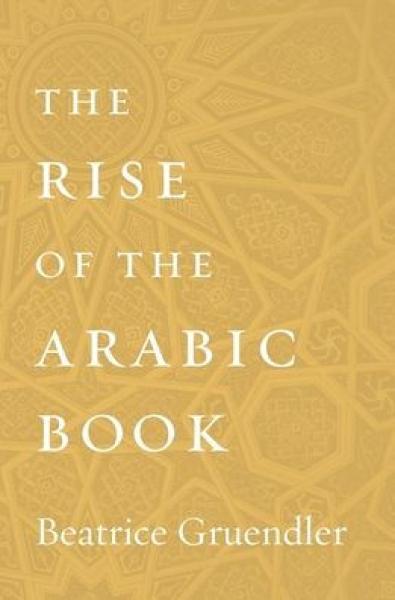Description
The little-known story of the sophisticated and vibrant Arabic book culture that flourished during the Middle Ages.
During the thirteenth century, Europe's largest library owned fewer than 2,000 volumes. Libraries in the Arab world at the time had exponentially larger collections. Five libraries in Baghdad alone held between 200,000 and 1,000,000 books each, including multiple copies of standard works so that their many patrons could enjoy simultaneous access.
How did the Arabic codex become so popular during the Middle Ages, even as the well-established form languished in Europe? Beatrice Gruendler's The Rise of the Arabic Book answers this question through in-depth stories of bookmakers and book collectors, stationers and librarians, scholars and poets of the ninth century.
The history of the book has been written with an outsize focus on Europe. The role books played in shaping the great literary cultures of the world beyond the West has been less known--until now. An internationally renowned expert in classical Arabic literature, Gruendler corrects this oversight and takes us into the rich literary milieu of early Arabic letters.
The history of the book has overwhelmingly focused on Europe. But during the Middle Ages, a crucial period of its development, the book was far more popular among speakers of Arabic. Beatrice Gruendler corrects this scholarly oversight, exploring the material resources that underlay the rich world of Medieval Arabic letters.
Beatrice Gruendler is a recipient of the Leibniz Prize and the author and translator of numerous books, including Medieval Arabic Praise Poetry. The former President of the American Oriental Society, she is Professor of Arabic at Freie Universität Berlin.
A window into the vibrant intellectual history of the classical Arabic book, from the pen of an eminent scholar of Abbasid belles lettres.--Tahera Qutbuddin, author of Arabic Oration: Art and Function
Beatrice Gruendler expertly plumbs classical and medieval Arabic sources to tell the fascinating story of how authors and autodidacts, book addicts and book doubters, poets and papermakers, and scholars and stationers of ninth-century Baghdad--the city of a hundred bookshops--contributed to the phenomenal rise of the Arabic book. This volume is destined to be indispensable for all who are interested in the global history of the book.--Shawkat M. Toorawa, Professor of Arabic, Yale University
An exciting and original look at the subject of Abbasid book production from one of the leading authorities on classical Arabic literature. Gruendler brings to life the role of the stationers as book makers and book sellers, humble craftsmen usually overlooked by historians, whose labors enabled Arabic book culture to flourish. This fascinating work inaugurates a new way of looking at the subject.--Hugh Kennedy, author of Caliphate: The History of an Idea
The breathtaking book revolution that took hold of the Arabic Near East from the ninth century CE onward led to an explosive growth in manuscripts, libraries, and all forms of written culture. In this extraordinary new book, Beatrice Gruendler traces the rise of the Arabic codex, bringing into focus not only the fascinating material objects themselves but also the people who made and used them. After reading this wide-ranging and deeply erudite work, no one who studies the history of the book and of global humanities in general will be able to ignore the Arabic contribution.--Glenn W. Most, coeditor of The Classical Tradition
Product Details
- Harvard Brand
- Oct 13, 2020 Pub Date:
- 0674987810 ISBN-10:
- 9780674987814 ISBN-13:
- 272 Pages
- 9.3 in * 6.3 in * 1 in Dimensions:
- 1 lb Weight:




